Stanford University has released the 7th list of the top 2% scientists in the world in 2024.Professor Pan Yishan in engineering, Professor Yu Miaojie and Professor Yao Shujie in economics, Professor Zhang Lei in chemistry, Associate Professor Cai Yuliang in artificial intelligence and intelligent control, Professor Xiong Ying and Professor Liu Lin in chemistry, Professor Han Zhengbo also in chemistry, Professor Gao Zhe in engineering, Professor Wang Jun in chemistry, Professor Liu Hongsheng in pharmacy and Professor Zhu Baoli in law and forensics, were among the ‘Annual Influence List’ of the top 2% scientists in the world in 2024.
Among them, professors Pan Yishan, Yao Shujie, Lei Zhang and Zhu Baoli were selected among the ‘Lifelong Scientific Influence List’ of the top 2% scientists in the world. The inclusion of the professors in the list indicates that research at Liaoning University enjoys high global status and influence. Being an important landmark achievement of Liaoning University’s ‘Double First-Class’ development, it highlighted the academic influence of high-end talents and the discipline strengths of Liaoning University.
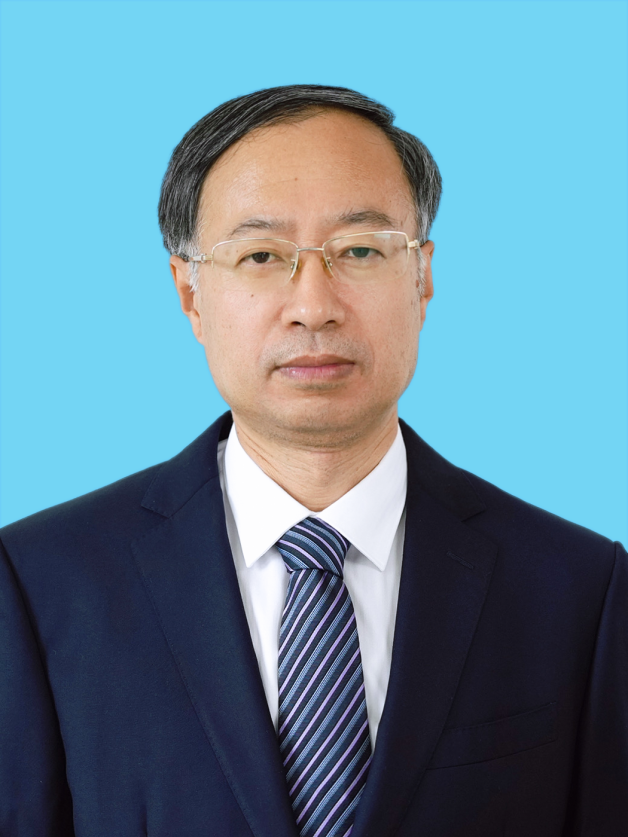
Professor Pan Yishan is a Ph.D. supervisor, an academician of the Chinese Academy of Engineering, a Ph.D. from Tsinghua University, a postdoctoral from the Institute of Geology of China Earthquake Administration, a senior visiting scholar from Michigan University, a winner of the National Talent Program, an expert enjoying special government allowance of the State Council, a national outstanding scientific and technological worker, and an outstanding talent under the Liaoning Revitalization Program. Currently he serves as Secretary of the CPC Committee of Liaoning University, Director of the First Coal Mine Power Disaster Prevention Committee of the Council of China Coal Society and Director of Mine Rock Burst Committee of Chinese Society for Rock Mechanics and Engineering. His research field is rock burst-related issues in coal mines, where he has gained remarkable achievements in the research of the occurrence, mechanism, prediction and prevention of coal mine disasters such as rock burst. He has been engaged in the research of coal mine dynamic ground pressure control since 1984. He proposed the theory of dynamic ground pressure disturbance response instability and established the technical system of rock burst prevention and control. He successfully tackled key technical challenges in the prevention and control of coal mine dynamic ground pressure and developed a complete set of equipment for dynamic ground pressure prediction and control. His research achievements were included in the Detailed Rules for the Prevention and Control of Coal Mine Rockburst and other laws, regulations and standards in China and have been widely implemented in national rockburst mines. He has won three second prizes of the National Science and Technology Progress Award and three first prizes of the provincial and ministerial Science and Technology Progress Award as the first finisher. In addition, he has published one monograph, granted 41 invention patents from China and the United States and published more than 80 SCI/EI academic papers. He has received the Second Prize of National Teaching Achievements twice, the 2nd National Innovation Pioneer Award, the 14th Guanghua Engineering Science and Technology Award and the Energy Award of the 31st Sun Yueqi Energy Science and Technology Award, among other honors.

Professor Yu Miaojie is a Ph.D. supervisor, a fellow of the International Economic Association of the United Nations, a winner of National Science Fund for Distinguished Young Scholars. He is a deputy to the 14th National People’s Congress, a member of the Standing Committee of Liaoning Provincial People’s Congress, a member of the Legislative Committee of Liaoning Provincial People’s Congress, Deputy Secretary of the CPC Committee and President of Liaoning University. He is among the top one percent most highly cited economists in the field of economics and management in the world and is also at present the only Chinese scholar to win the Royal Economic Society Prize. He is an outstanding Young Scientist of Beijing, a Distinguished Professor at Peking University, a member of Economic and Trade Policy Advisory Committee of Ministry of Commerce, and a council member of ‘China-US Research Think Tank Alliance’ of the Ministry of Finance. He also serves as Vice President of the China Society of World Economics, Vice President of the China Econometrics Association, Vice President of the Chinese Association of Quantitative Economics, Vice President of the China Society of Industrial Economics, Vice President of the Chinese Association of Hong Kong & Macao Studies, and Vice Chairman of Liaoning Federation of Social Sciences. His research field is international trade and China’s economic development. He has published nearly 200 papers in top and first-class journals at home and abroad, such as Economic Journal, Review of Economics & Statistics, Journal of International Economics, Journal of Development Economics, Economic Research and Managing the World and published 27 monographs, textbooks and essays in Chinese, English and German languages. He has won many awards, including the Award for Outstanding Achievements in Philosophy and Social Sciences from the Ministry of Education (three times), the Award for Outstanding Achievements in Philosophy and Social Sciences in Beijing, Wu Yuzhang Prize on Humanity and Social Science, Pei-Kang Chang Prize in Development Economics, and the Anzijie International Trade Research Award (five times).
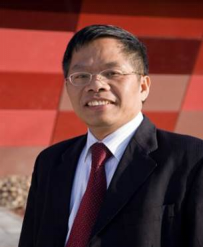
Yao Shujie is Dean of Li Anmin Institute of Economic Research of Liaoning University, a Senior Professor, Deputy Director of the Academic Committee of Liaoning University, a distinguished professor of National Talent Program, a distinguished professor of Chongqing University and an outstanding scientist of Chongqing. He is a Ph.D. of the University of Manchester in the UK and a postdoctoral of Oxford University. He has published more than 200 papers and 19 monographs in SSCI/CSSCI journals such as Journal of Political Economy and Economic Research. He serves as a member of the editorial board of SSCI/CSSCI journals such as Economic Research and chief editor of Digital Economy and Sustainable Development. His research results have been cited more than 11,000 times in Google Scholars and CNKI and he was awarded as one of the Elsevier’s highly cited scholars in global applied economics in 2020 to 2023, the lifetime and annual ranking of 2% top scientists in the world in 2022 to 2023 and the List of One Thousand Outstanding Scientists in the Field of Economic and Financial Management in Modern Britain (261). He has hosted major projects of the National Social Science Foundation and is the winner of Zhang Peigang Excellent Paper Award for Development Economics and An Zijie Excellent Paper Award for International Trade.
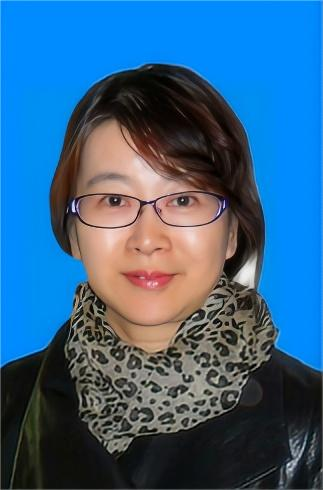
Zhang Lei is a Ph.D. in Materials Chemistry, a second-level professor, and a PhD supervisor. She is a winner of the special government allowance of the State Council, and an innovative leader of Liaoning Province’s ‘Revitalizing Liaoning Talents Program’. She was selected as an innovative team leader of Liaoning Province’s colleges and universities twice, was selected among the outstanding scientific and technological talent support program of Liaoning Province’s colleges and universities and won the title of excellent PhD/master’s degree thesis instructor in Liaoning Province many times. She has been awarded the seventh outstanding expert in Shenyang, the thirteenth outstanding scientific and technological worker in Shenyang, the leading talent in Shenyang, the outstanding graduate instructor in Shenyang and the communication evaluation expert of the National Natural Science Foundation.
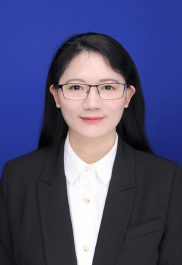
Cai Yuliang is an Associate Professor of School of Mathematics and Statistics, and a master’s supervisor. She has published more than 50 academic papers in well-known journals such as IEEE Transactions on Neural Networks and Learning Systems and IEEE Transactions on Cybernetics and 22 papers in SCI journals as the first author, including five in IEEE Transactions. She has published one paper in Chinese, three highly cited papers in ESI and one was rated as ‘a highly cited paper in ESI, a popular paper and one of the 100 most influential international academic papers in China’. She is responsible for the National Natural Science Foundation for Young Scholars, the General Program of China Postdoctoral Science Fund, the Liaoning Provincial Doctoral Research Start-up Fund, the Liaoning Provincial Social Science Planning Fund, the Liaoning Provincial Education Department Youth Program, the Liaoning University Research Start-up Fund, the Liaoning University Youth Research Fund and the Liaoning University Undergraduate Teaching Reform Project. Her research results have won the first prize and the second prize of excellent papers in the annual meeting of the Liaoning Computer Society, the first prize of excellent papers in the annual meeting of Liaoning Mathematical Society and the third prize of Liaoning Natural Science Academic Achievement Award. As an editor-in-chief, she has published one monograph, and four national invention patents have been accepted at the national level. She is a member of the editorial board of the Journal of Artificial Intelligence and Systems.
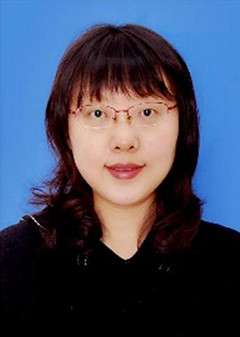
Xiong Ying is a professor, a Ph.D. supervisor and Vice President of the School of Chemistry. Her research field is inorganic separation and functional materials. She is mainly engaged in the research of rare earth elements and functional materials and has published more than 80 papers in international journals with a strong influence in her field, such as J. Hazard. Mater., Bioresource Technol., Chem. Eng.J., among which more than 30 papers were from the first and second regions of SCI project. She has presided over three national natural science funds and 11 other provincial and ministerial projects. She has won the second prize of Liaoning Natural Science Award, the second prize of Liaoning Science and Technology Invention Award, the third prize of Liaoning Science and Technology Progress Award, three other government science and technology awards, 10 Liaoning Natural Science Academic Achievement Awards and two provincial achievements transformation projects. She has won 15 authorized national invention patents and published two academic monographs, including Solvent Extraction and Separation Chemistry of Rare Metals. She is Deputy Director of Liaoning Key Laboratory of Rare and Scattered Elements, concurrently the Executive Director of the National Research Association for the Development of New Materials Technology, a member of the Metallurgical Reaction Engineering Committee of China Nonferrous Metals Society, a member of the Comprehensive Utilization Committee of Nonferrous Metallurgical Resources of China Nonferrous Metals Society, an expert of the Innovation and Entrepreneurship Alliance of Liaoning Returned Overseas Chinese Federation and a member of the Special Expert Committee of Shenyang Federation of Returned Overseas Chinese.
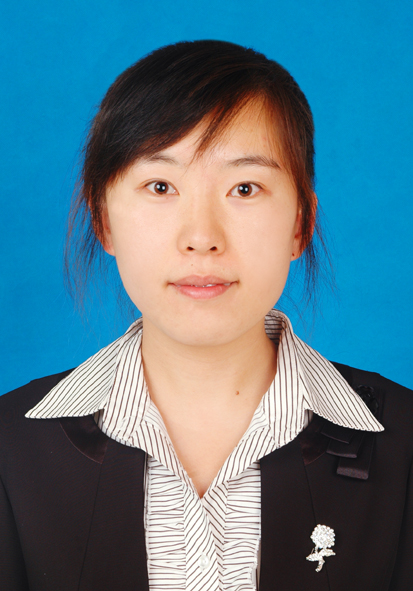
Liu Lin is a professor and a Ph.D. supervisor. Her research field is the preparation and utilization of heterogeneous catalysts for new MOFs and carbon-based skeleton materials and their composites. In the past five years, she has presided over the completion and research of one project of the National Natural Science Foundation, one project of the Science and Technology Department of Liaoning Province and one project of the Education Department of Liaoning Province and has been selected as a top-notch young talent in Liaoning Province’s ‘Revitalizing Liaoning Talents Program’. In recent years, as a correspondent and first author, she has published more than 20 papers in domestic and foreign academic journals, such as J. Mater. Chem.A, Chem. Commun and INORG. Chem. Her research results have won the second prize of natural science in Liaoning province, the top ten outstanding academic achievements in natural science in Shenyang and the second prize of academic achievements in natural science in Liaoning province.
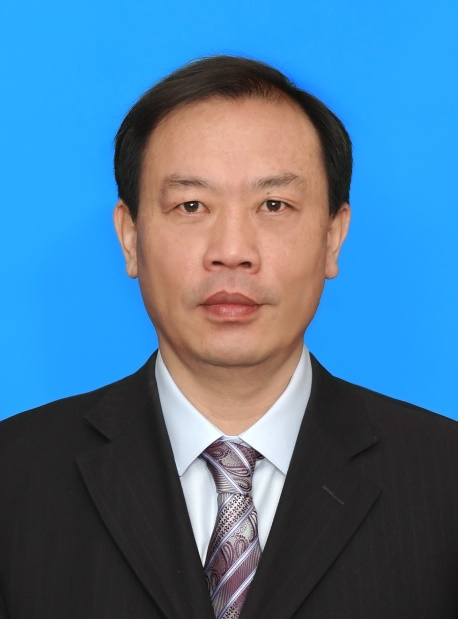
Han Zhengbo is a professor and a Ph.D. supervisor. Born in October 1969, he studied under Professor Wang Enbo, a famous polyacid chemist. In 2002, he received his doctorate from the Department of Chemistry of Northeast Normal University. Later, he went to the research group of Academician Chen Xiaoming from the School of Chemical Engineering of Sun Yat-sen University to do postdoctoral research. In January 2005, he was introduced to Liaoning University as a talent and was hired as a professor. From 2009 to 2010, he was a visiting scholar under Professor Zhou Hongcai’s program, who is from the Department of Chemistry, Texas A&M University. In 2005 and 2011, he was selected into the Outstanding Talents Support Program of Colleges and Universities in Liaoning Province twice. He is an innovative leading talent of ‘Revitalizing Liaoning Talents Program’, won the second prize of Liaoning Natural Science Award and won many excellent awards as a doctoral/master’s degree thesis instructor in Liaoning Province. His research field is the application of porous materials in catalysis, gas separation and supercapacitors.
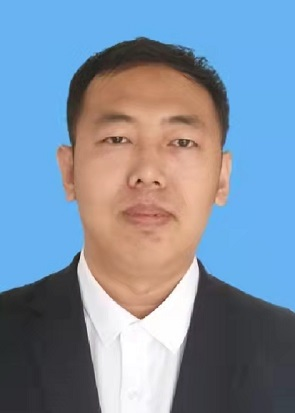
Gao Zhe is a professor of the School of Light Industry, a Ph.D. and master supervisor, Director of the department of electrical engineering and automation and Director of the experimental center. He is a top-notch young talent in the ‘Revitalizing Liaoning Talents Program’, a top-notch high-level talent in Shenyang, a young and middle-aged scientific and technological innovative talent in Shenyang and a top-notch young talent in Liaoning University. He is a member of the Professional Committee of Fractional System and Control of China Automation Society, a member of the Professional Committee of Data-driven Optimization, Learning and Control of China Automation Society, an American mathematical critic, an expert in science and technology evaluation of Shenyang Science and Technology Bureau and a topic editor of SCI journal Fractal and Fractional. He is head of Campus Learning Center of ‘Siemens Cup’ China Intelligent Manufacturing Challenge.
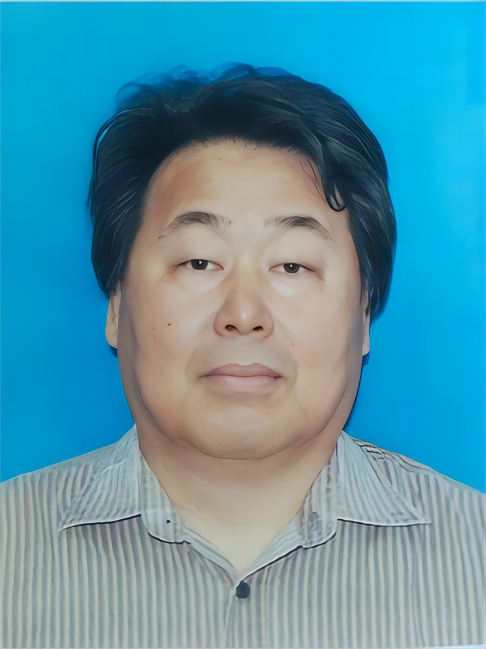
Wang Jun is a professor and a Ph.D. supervisor. He is mainly engaged in the synthesis, structure and properties of rare earth-aminopolycarboxylic acid complexes, preparation and properties of solar photocatalytic materials, photocatalytic reaction mechanism and ways to improve photocatalytic reaction efficiency as well as sonocatalytic damage of biomolecules and sonocatalytic degradation of organic pollutants. He has undertaken and participated in several national projects (four national natural science funds and one overseas study fund), 15 provincial and ministerial projects, two municipal projects and 15 horizontal projects. He has published a total of 420 academic papers (excluding conference papers, including 380 papers as the first author and correspondence contact, 300 in SCI, 96 in EI and 313 in international journals). He has won one natural science award (second prize) from Liaoning Provincial Government, 17 achievement awards from Liaoning Association for Science and Technology (including four first prizes and 13 second prizes), two scientific and technological progress awards from Shenyang (one second prize and one third prize) and 36 national invention patents.
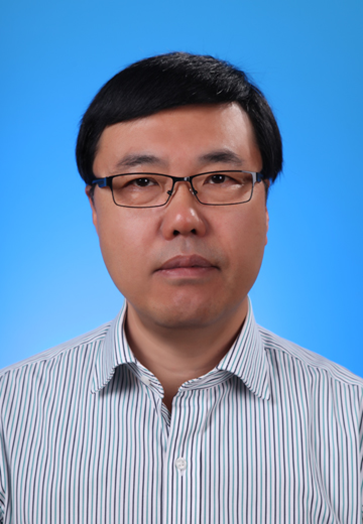
Liu Hongsheng, born in October 1963, is a second-class professor, a PhD supervisor, Director of the Key Laboratory of Computational Simulation and Information Processing of Biomacromolecules in Liaoning Province and Director of the Laboratory of Pharmaceutical Molecular Simulation and Design Engineering in Liaoning Province. He has won the honors of ‘Leading Talents in Liaoning Province’ for scientific and technological innovation and ‘Famous Teacher Award’ for ordinary colleges and universities in Liaoning Province. He has presided over more than 70 national, provincial and ministerial projects, published 95 SCI index papers, obtained 17 invention patents and nine software copyrights. He has won the second prize of scientific and technological progress in Liaoning Province, the first prize of science and technology of China Ethnic Medicine Association and the third prize of scientific and technological achievements transformation competition for college workers directly under Liaoning Provincial Federation of Trade Unions. He discovered a new microbial species ‘Paenibacillus liaoningensis sp. nov.’ and discovered the interaction between NS1 protein and NOCL1 protein of influenza virus, which helped the development of a new prophase drug of nattokinase with preventive and therapeutic effects on cardiovascular and cerebrovascular diseases. He developed green ecological culture for aquatic products and applied it in many coastal cities in Liaoning Province. At the same time, he developed computer-aided drug design, calculation and simulation of three-dimensional structure and modification of biological macromolecules, drug toxicity prediction model and microbial system identification database, which provided prediction models for new drug research and development.
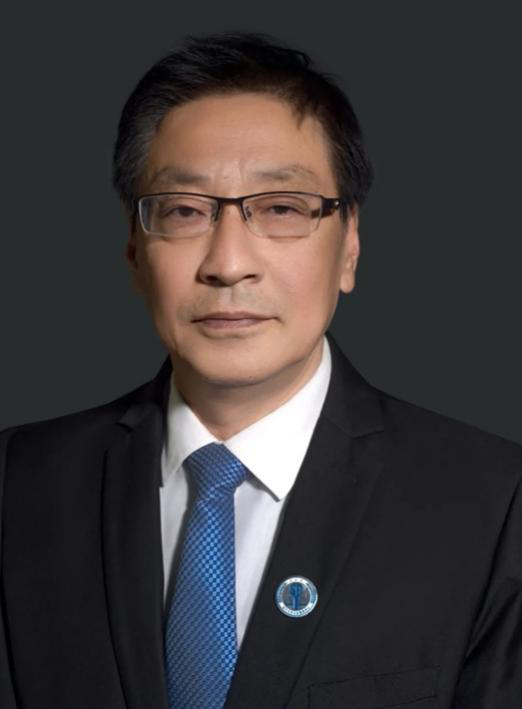
Zhu Baoli is Director of Liaoning Forensic Medicine Society, Chairman of the Forensic Pathology Committee of Liaoning Forensic Medicine Society and a member of the expert group of Chinese Medical Association, Liaoning Medical Association and Shenyang Medical Association. In June 2021, he worked in the Institute of Judicial Appraisal of Liaoning University. He graduated from China Medical University in 1983, majoring in medical science and has been engaged in teaching, scientific research and identification of forensic pathology since then. During this period, he studied and worked in the Forensic Medicine Classroom of the Medical College in Osaka City University. He is engaged in research on forensic pathology and pathophysiology of sudden death caused by heart, brain, lung and other organs in autopsy cases. Among them, the research on pathophysiology of sudden death and biochemistry after death is the world’s leading level in forensic identification. Up to now, he has published more than 150 research papers in international authoritative forensic journals, including more than 60 papers published as the first author. He has been supported by the National Natural Science Foundation, Liaoning Provincial Department of Education and Liaoning Provincial Department of Science and Technology and has published more than 60 papers in authoritative forensic medicine magazines at home and abroad. He has presided over and participated in more than 7000 cases of forensic pathology identification at home and abroad and has rich experience in forensic pathology identification.
The ‘Top 2% Scientists List in the World’ has two rankings: ‘Lifelong Scientific Influence Ranking (1960-2024)’ records the comprehensive influence performance of the scientists during their careers and ‘2024 Scientific Influence Ranking’ focuses on the academic influence of the scientists in the previous year. Based on the systematic analysis of citation data in Scopus database, the list is scored with six key factors, including total citation, Hirsch H-index, Schreiber Hm-index revised by co-authors, individual authors, individual or first authors and article citations of individual, and first or last authors. Based on the publication and citation of about 10 million scientists around the world, the list reflects the output and academic influence of scientists and includes the top 2% scientists from 22 disciplines and 174 sub-disciplines in the world.